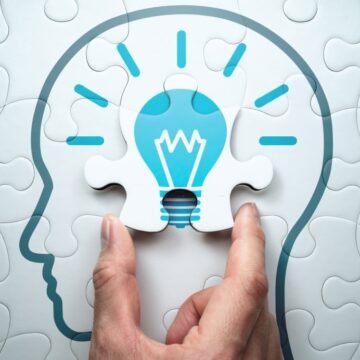
-
- One of the most feared consequences that comes with aging is cognitive impairment.
- But based on study finding, aerobic and weight training can help delay mental decline and may even sharpen memory.
- Keeping your brain stimulated through challenging activities is also beneficial to your brain in a way that it can train it to think faster and hence, younger.
As we age, our brain changes as well as its mental functions. One of the most feared consequences of aging is mental decline. While we can do a lot to stay healthy as we grow older, we may not know how exactly we can keep our memory sharp and maintain brain function. Surprisingly, it’s not that complicated. Learn 6 strategies you might try to protect your brain and retain sharp memory.
1. Get moving

Perhaps the most prominent brain research today is the notable evidence that “exercise may forestall some kinds of mental decline” and it may even restore memory, says psychology professor Mark McDaniel, PhD, at Washington University in St. Louis. Based on studies, the best outcomes result from engaging in a combined program of aerobics and weight training.
2. Nourish your brain

The best things you can eat for your body are also the best things you can eat for your brain, says Carol Greenwood, PhD, a geriatric research scientist at the University of Toronto.
Eating foods rich in cancer-fighting antioxidants is beneficial to brain health. Excellent sources include colorful fruits and vegetables, beans, whole grains, nuts, and spices.
Along with exercise, also avoid foods that will harm your brain such as those that cause high blood pressure, type 2 diabetes, obesity and high cholesterol.
3. Stimulate your brain

Our brains naturally start slowing down at the age of 30. But given the right tools, people of any age could train their brains to be faster and, in effect, younger.
“Your brain is a learning machine,” says University of California, San Francisco neuroscientist, Michael Merzenich, PhD., adding that all it needs are exercises for the mind.
BrainHQ , a computer-based training program developed by Merzenich, can speed up information processed by the brain. Because much of the data we receive comes through speech, the Brain Fitness regimen works with language and hearing to improve its speed and accuracy. Merzenich says the program is like a tennis instructor throwing balls at you at an increasingly faster rate over the course of your training to keep you challenged.
In the last 10 years, the most significant finding in brain research indicates that the brain at any age is highly adaptable. Meaning, your brain will learn if you ask it to learn, and it may even speed up during the process.
Tools to keep your brain younger include doing challenging and exciting activities such as playing Ping-Pong, solving jigsaw puzzles, learning a new language, playing an instrument, building a kit airplane, mastering bonsai techniques, and many more.
4. Relax and stay calm

It is essential to challenge your brain, but so is staying calm. Jeansok Kim of the University of Washington highlights in a paper on the brain and stress, that traumatic stress is harmful for your brain cells. It can interfere with cognitive processes such as learning and memory, which in effect, restricts the quality of life.
Physical exercise as well as relaxing activities such as yoga and meditation are great de-stressors. Mental calisthenics like swing lessons and Swahili can help as well.
5. Rest your brain

Researchers found in a study involving a video game that people who took naps were twice as likely to solve a puzzle in the game compared to those who stayed awake. This may be due to the theory that the brain is capable of processing complex information even during sleep.
6. Laugh a little

While humor stimulates the feel good” chemical messenger dopamine, can it make us smarter? Although more research is needed, one study outcome found that laughter could enhance short term memory. People who watched a funny video not only scored better on the memory test but had lower levels of cortisol, also known as the stress hormone.
Source: The Healthy
